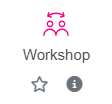Workshop
A "workshop" activity allows you to present a task or assignment that requires peer review and evaluation.
Introduction

Workshop is an effective teaching strategy based on student participation and engagement in the assessment process, particularly suited to achieving the goals of academic teaching in various content areas. Research indicates a good match between faculty grades and teacher assessments and student assessments. Therefore, student assessments can be used.
Workshop is a high-level thinking task that allows students to become familiar with the criteria used to evaluate their work, and contributes to students' advancement of understanding and professional skills. Research suggests that workshop is an effective strategy for enhancing the learning process and increasing motivation (Conway et al., 1993; Falchikov & Goldfinch, 2000).
The Moodle system enables the effective implementation of workshop in teaching, while maintaining anonymity, accessibility to peer work and assessment criteria, the possibility of online submission of the assessment, automatic processing of data and presentation of assessment results.
Workshop in the Moodle system
- In the workshop activity in Moodle, a student submits a work, and subsequently, evaluates several works submitted by peers.
- In the workshop activity, students receive two grades (1) a grade for submitting the work (2) a grade based on the assessments of their peers. Both grades are recorded in the course grade sheet.
The peer assessment activity includes five stages, and the lecturer moves the assignment from stage to stage, depending on progress:
Preparation: The lecturer defines the characteristics of the activity, the timetable and the indicator (this stage can also be returned to later). At this stage, an example of the assessment can be uploaded.
Submission: Students submit assignments, according to the lecturer's instructions.
The lecturer defines assignments for assessment by manual assignment or, alternatively, by automatic assignment.
Peer assessment: Students evaluate the work of their peers using a structured indicator (evaluation form), which contains evaluation criteria (indicators) defined by the lecturer.
Assessment and grading: The system automatically assigns grades consisting of the grade for the submitted work and a grade for the quality of the assessment.
Closing: The grades are transferred to the grade sheet in the Moodle system and each student can see the assessments they received from their peers.
Recommendations for implementing workshop in the course
- Preliminary information is required - students will benefit more from this type of activity if they understand how the experience of assessment will benefit them.
Preparation should include a rationale for pedagogy, work instructions, a schedule, reference to the evaluation criteria, and training on how to give good feedback. - All of these may prevent resistance, reduce bias, and improve validity.
In addition, it is recommended to practice assessment, while presenting examples of good and bad evaluation.
- It is recommended to choose an exercise/task that has already been tested in previous semesters, and was found to be valid and reliable.
- In the preparation phase, defining the indicator is critical! The indicator (evaluation form) that includes criteria and performance levels, assists and guides students in providing an evaluation and grading. The quality of the indicator will affect the quality of the assessments (see Miller, 2003).
- Instruct students to justify/reason the decisions and grades, to prevent extraneous considerations in giving grades.
- It is recommended to publish the criteria at an early stage, so that they guide students starting from the preparation phase of the work.
- It is recommended to consider what the goal of integrating students in the evaluation is and, accordingly, what is the preferred way to assign work for evaluation, for example: defining groups of students (2-4), who will perform mutual evaluation.
- It is recommended to allow peer assessment and/or self-assessment as a bonus or permission rather than a requirement (see Komarov & Gajos, 2014).
- The Center for Promotion of Learning and Teaching offers pedagogical and technological support and friendly answers to questions. In addition, the Moodle Developers Forum offers support and answers to questions.
References
- Falchikov, N and Goldfinch, J. (2000). Comparing Peer and Teacher Marks Student Peer Assessment in Higher Education: A Meta-Analysis. Review of Educational Research. Vol 70 (3). pp287-322.
- Conway, R., Kember, D. Sivan, A. and Wu, M. (1993) Peer Assessment of an Individuals Contribution to a Group Project. Assessment and Evaluation in Higher Education, 18 (1) 45-56.
- Komarov, S., Gajos , J. K. (2014). Organic Peer Assessment
- www.eecs.harvard.edu/~kgajos/papers/2014/komarov14organic.pdf
- Miller, P. J., (2003). “The Effect of Scoring Criteria Specificity on Peer and Self-Assessment”, Assessment & Evaluation in Higher Education, Volume 28, No 4, pp 383-394.
Written by Dr. Irit Wertheim
